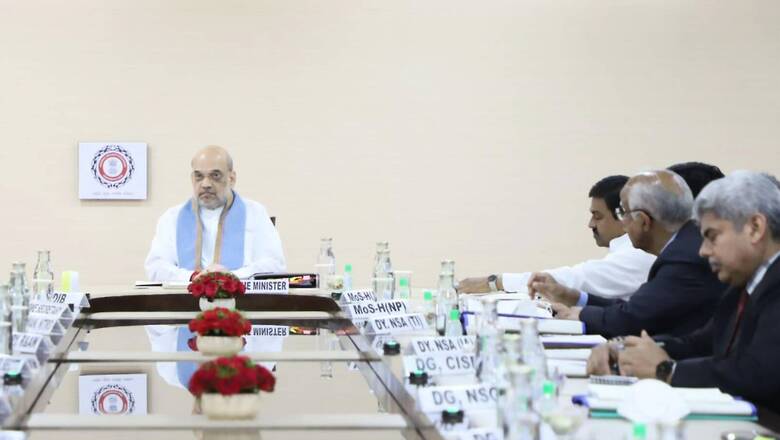
views
Shortly after a CNN-News18 investigation about rampant illegal migration on the India-Nepal and India-Bangladesh borders and its link to radicalisation aired, union home minister Amit Shah discussed the issue at the highest level with the top police officers of the country.
Addressing the National Security Strategies Conference, Shah asked state DGPs to take extra measures for border districts. “Home minister said that DGPs of border states must keep a hawk eye on the demographic changes that are happening in the border areas,” a statement from the ministry said. It added that Shah reminded the DGPs that technological and strategic inputs must percolate down to border districts on such issues.
CNN-News18 had reported on Tuesday how a new modus operandi is being implemented along the India-Nepal border where Aadhaar cards were being allegedly procured for illegal Bangladeshi and Rohingya immigrants and their inclusion in existing family trees of Indian Muslims was being arranged. “Inclusion in existing family trees and then immediate transportation to states like Maharashtra, Karnataka, etc, by organisations like the Popular Front of India (PFI) is making weeding out of illegal migrants a big challenge,” officials said.
The investigation by CNN-News18 in Bihar’s Seemanchal saw pucca colonies in no man’s land. In Assam, the indigenous Muslims told us that the influx of Bangladeshis had led to a madarsa in every village in districts like Dhubri. While in Uttar Pradesh, along the India-Nepal border districts of Bahraich, Maharajganj, Pilibhit, etc, a 30% spurt was seen in madarsas, and masjid constructions compared to previous years. Agencies suspect the new madarsas, masjids, and illegal migrants are all part of a grand design to orchestrate a demographic change and radicalise the local population.
The two-day National Security Strategies (NSS) Conference 2022, on Thursday saw the home minister specifically raising the issue of demographic changes and radicalisation along the India-Nepal and India-Pakistan borders, as per officials.
600 top officials of the country including the union home secretary, deputy NSAs, DGPs/IGPs of all states/UTs and DGs of CAPFs were in attendance.
The home minister, as per the MHA spokesperson, stressed on the need to use technology as well as human intelligence to strengthen internal security. “We have to make good use of 5G technology to strengthen the security system. The basic principle of a modern intelligence agency should not be ‘need to know’, but ‘need to share’ and ‘duty to share’ because we will not get success unless the approach changes,” the minister said. “Along with technology, we should also give equal thrust to the use of human intelligence.”
On the issue of drugs, the home minister stressed on the need to not just catch consignments but also completely “uproot the drug network”.
Counterterror and counter-radicalisation, cryptocurrency, anti-drone technology, cyber and social media surveillance, emerging challenges due to 5G technology, and demographic changes and growing radicalisation in border areas were some of the core areas that emerged as key concerns for the internal security brass of the country.
(With inputs from Anvit Srivastava, Anshul Singh, and Preety Priyadarshinee)
Read the Latest News and Breaking News here


















Comments
0 comment